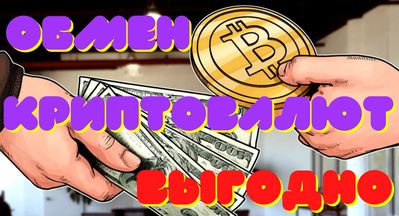First Mover Asia: Bitcoin Snaps Losing Streak as Pelosi Taiwan Trip Passes Without Incident

Good morning. Here’s what’s happening:Prices: Bitcoin snaps losing streak, while Solana’s SOL token slides after hack that drained crypto wallets.Insights: Risks posed by this week’s visit to Taiwan by U.S. House of Representatives Speaker Nancy Pelosi appear failed to materialize – at least in the eyes of the bitcoin market, Sam Reynolds reports.
●Bitcoin (BTC): $22,807 −1.1%
●Ether (ETH): $1,614 −2.0%
●S&P 500 daily close: 4,155.17 +1.6%
●Gold: $1,781 per troy ounce +0.5%
●Ten-year Treasury yield daily close: 2.75% +0.007
Bitcoin, ether and gold prices are taken at approximately 4pm New York time. Bitcoin is the CoinDesk Bitcoin Price Index (XBX); Ether is the CoinDesk Ether Price Index (ETX); Gold is the COMEX spot price.
Bitcoin Extends Losing Streak to Six Days
Bitcoin (BTC) extended its losing streak to six days, dropping 1% to about $22,800.
The largest cryptocurrency by market cap seemed mostly unfazed by crypto’s latest hack that left over 8,000 wallets, including several Solana (SOL) addresses, compromised on Tuesday.
But Solana’s SOL token fell over 4.2% during the past 24 hours and is down 76% year-to-date. The ninth-biggest cryptocurrency by market cap did not break below its 50-day simple moving average (SMA) – suggesting that some large Solana holders might still be holding on.
For the past two weeks, bitcoin seems to have entered a new range, now hovering between $21,200 and $24,400, a step up from the $17,000 to $21,000 range in the weeks before.
“Bitcoin needs a crypto specific catalyst to trigger a meaningful move above the $24,700 level,” Edward Moya, senior market analyst at the foreign-exchange broker Oanda, wrote Wednesday in an email update.
Markets in general seem to have recovered from U.S. House of Representatives Speaker Nancy Pelosi’s (D-CA) visit to Taiwan on Tuesday, which caused many investors to stay away from risky assets amid potential U.S.-China tensions.
Ethereum (ETH) ended the day slightly lower, trading at $1,644.62 at press time.
Biggest Gainers
| Asset | Ticker | Returns | DACS Sector | ||||||||||||||||||||||||
|---|---|---|---|---|---|---|---|---|---|---|---|---|---|---|---|---|---|---|---|---|---|---|---|---|---|---|---|
| Cosmos | ATOM | +0.8% | Smart Contract Platform | Chainlink | LINK | +0.4% | Computing | Polkadot | DOT | +0.2% | Smart Contract Platform
Biggest Losers
|
Nothing is Going to Happen as a Result of the Pelosi Trip. So Let’s all Calm DownBy Sam Reynolds in Taipei
Tuesday was a fairly normal day in Taiwan. On Kinmen, a group of islands only a few miles from China, “the threat of war is the furthest thing from people’s minds,” as one foreign journalist on the island described the local mood in the late afternoon.
On Twitter and most Western media it was something different: clouds of war were gathering. Beijing was certainly egging on the narrative with displays of military hardware on beaches in Xiamen, a coastal city in China. Censors on Weibo, a local social media platform, which are often quick to erase anything politically sensitive, let the videos remain untouched and they eventually made their way onto YouTube.
After Pelosi landed, Beijing was quick to ‘retaliate’. It suspended import licenses for citrus fruit, two types of fish, as well as 100 brands of snacks and confectionaries. They’ve also promised to conduct live fire exercises off of Taiwan’s coast later in the week, but haven’t specified what exactly that would entail.
China’s economy
Let’s put this all in context
There’s speculation that, on Beijing’s side, these might be calculated measures to distract the local population from the bleak economic reality unfolding within China.
Four regional banks in-country are reportedly ready to collapse, dragged down by China’s growing debt bubble, the precarious housing market and an industrial slowdown due to its lockdowns and Covid-zero policies. When one bank refused to accept withdrawal requests, protesters marched on its steps; authorities hired thugs to disperse them and weaponized the protesters’ health QR codes, turning them red, which is an automatic quarantine sentence in state-run facilities.
Blaming Americans for meddling in Taiwan – what China calls its own affairs, governing – is an easy distraction.
Both sides know their limits. After all, China is Taiwan’s largest trading partner, with 40% of its exports going to either China or Hong Kong. Likewise, Taiwan is an important trading partner for China: It’s the ninth-largest destination for China’s exports.
Taiwan also conducts its share of military exercises close to China’s coast. Kinmen, a rock of tranquility this week as many in the West thought Pelosi’s impending arrival was the precipice of war, plays host to annual live-fire military exercises that take place only miles from Xiamen.
While China sends aircraft into Taiwan’s Air Defense Identification Zone, an area beyond a country’s airspace that’s monitored by the military, it tends to keep its aircraft well away from Taiwan’s actual airspace and doesn’t cross the median line of the Taiwan Strait. In contrast, Taiwan’s air force regularly flies to Kinmen, and its other offshore islands that are past the median line such as Penghu and Matsu.
Taiwan semiconductors
Neither side wants war
If China really wanted to escalate things, it would use its vast censorship leviathan to wipe Weibo clean of videos of military equipment moving or talk of live-fire exercises off the coast of Taiwan.
It would also seek to ban more significant Taiwanese exports rather than citrus fruits, frozen fish, and sweets. Keep in mind that the last agricultural export ban backfired as locals and other nations annoyed with China bought up the Taiwanese fruit destined for China that would otherwise go to waste.
Semiconductors amount to just over 35% of all of Taiwan’s exports, and banning their import to China would significantly hurt the Taiwanese economy.
But at the same time, it would deprive Chinese firms of the advanced chips their electronics industry requires. Its own semiconductor fabrication firms are years behind Taiwan and Korea as export restrictions first put through by the Trump White House prevent Chinese firms from getting the tools they need to compete. A semiconductor import ban would do serious harm to the Chinese economy, which is why it’s not being considered.
It seems that the most China is able to do is cause annoyances with a cyber campaign and using bots to spread disinformation about missile attacks.
The market has seemed to shake this all off as cooler heads have prevailed. There’s been saber-rattling for domestic audiences, but cross-strait business continues to thrive. And that’s not something that will affect the price of bitcoin.







 Bitcoin
Bitcoin  Ethereum
Ethereum  Tether
Tether  USDC
USDC  Dogecoin
Dogecoin  Cardano
Cardano  TRON
TRON  Bitcoin Cash
Bitcoin Cash  Chainlink
Chainlink  Polygon
Polygon  Litecoin
Litecoin  LEO Token
LEO Token  Dai
Dai  Hedera
Hedera  Stacks
Stacks  Ethereum Classic
Ethereum Classic  Cronos
Cronos  Stellar
Stellar  Cosmos Hub
Cosmos Hub  OKB
OKB  Maker
Maker  Theta Network
Theta Network  Monero
Monero  Algorand
Algorand  NEO
NEO  Gate
Gate  Tezos
Tezos  EOS
EOS  KuCoin
KuCoin  Synthetix Network
Synthetix Network  IOTA
IOTA  Tether Gold
Tether Gold  Bitcoin Gold
Bitcoin Gold  TrueUSD
TrueUSD  Enjin Coin
Enjin Coin  Zilliqa
Zilliqa  Holo
Holo  Ravencoin
Ravencoin  Siacoin
Siacoin  0x Protocol
0x Protocol  Qtum
Qtum  Basic Attention
Basic Attention  Ontology
Ontology  Decred
Decred  Dash
Dash  NEM
NEM  Zcash
Zcash  Lisk
Lisk  Waves
Waves  DigiByte
DigiByte  Numeraire
Numeraire  Status
Status  Nano
Nano  Hive
Hive  Pax Dollar
Pax Dollar  Steem
Steem  Huobi
Huobi  OMG Network
OMG Network  BUSD
BUSD  Ren
Ren  Bytom
Bytom  Bitcoin Diamond
Bitcoin Diamond  HUSD
HUSD  Kyber Network Crystal Legacy
Kyber Network Crystal Legacy  Energi
Energi  Augur
Augur